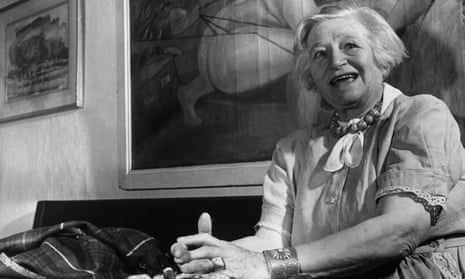The author of Lady Chatterley’s Lover wasn’t just skilled at constructing morally charged studies of the human condition. He was also nifty enough with a needle and thread to whip up a pair of calico bloomers and trim a hat. He wasn’t averse to scrubbing a kitchen floor either and when stripping a lover during an alfresco tryst, he’d be sure to fold her clothes neatly as he went.
At least, that’s the way Annabel Abbs depicts him in Frieda, a lushly written second novel that contrives to be at once mischievous and testing. No reader will think of DH Lawrence in quite the same way again. But despite scenes to leave a feminist weak-kneed, its true subject makes for less comfortable reading: the muse’s lot. Because this isn’t a novel about Lawrence, it’s about his lover, editor, confidante, punchbag (not quite the feminist fantasy after all) and, yes, muse.
Frieda von Richthofen, the daughter of a philandering, down-on-his-luck German baron, was just 20 when she married British philologist Ernest Weekley in 1899, moving with him to Nottingham. Three children later, Frieda becomes aware of something stirring inside her. “I call it the what-I-could-be,” she tells her puzzled young son. Her meddlesome sister promotes an affair with the maverick psychoanalyst Otto Gross, but that has burnt out by the time she is introduced to one of her husband’s students, a prodigiously gifted miner’s son six years her junior. The attraction is electric and they’re soon eloping to the continent.
Abbs’s debut, The Joyce Girl, imagined the plight of another muse, James Joyce’s daughter, Lucia, who was drawn to his protege Samuel Beckett while also in analysis with none other than Jung. This latest draws on historical research and Lawrence’s novels, for whose female characters Frieda was often the inspiration. Quotes from their pages signpost Frieda’s journey towards a fraught intellectual, sexual and creative fulfilment that consists entirely of supporting Lawrence and his work.
There’s a triumphant silliness to the sex scenes. Otto Gross at one point inks “woman of the future” on her bottom and “Lorenzo” – Frieda’s pet name for Lawrence – is forever weaving flowers into the pubic hair of his “Queen Bee”. But Frieda pays a heartbreakingly high price for her freedom. Her feelings for her children are painfully real; draconian divorce laws meant that as an adulteress she forfeited all legal claim to the offspring she had given birth to and nurtured. This didn’t stop her fighting, but Lawrence, despite his early devotion, is depicted as staggeringly self-absorbed and unsympathetic. A low point comes on his editor’s lawn when, having been told to grovel on the ground for a cigarette butt, Frieda finally snaps and smashes a terracotta pot over his head while he hums a Hebridean folk song. “If you have lived with an artist, other men are just so boring,” Frieda quips by way of explanation. Toxic though their relationship seems, it lasted until Lawrence’s death in 1930.
In animating a vital (in all senses) figure plucked from the footnotes of literary history, Abbs hasn’t offered any of the details that make Frieda difficult to applaud a century on. And why should she? Nothing was easy for her, after all. Frieda emerges as a woman at once scandalously out of step with the #MeToo moment and wholly herself and it is this contradiction that gives Abbs’s exuberant novel its compelling charge.

Comments (…)
Sign in or create your Guardian account to join the discussion